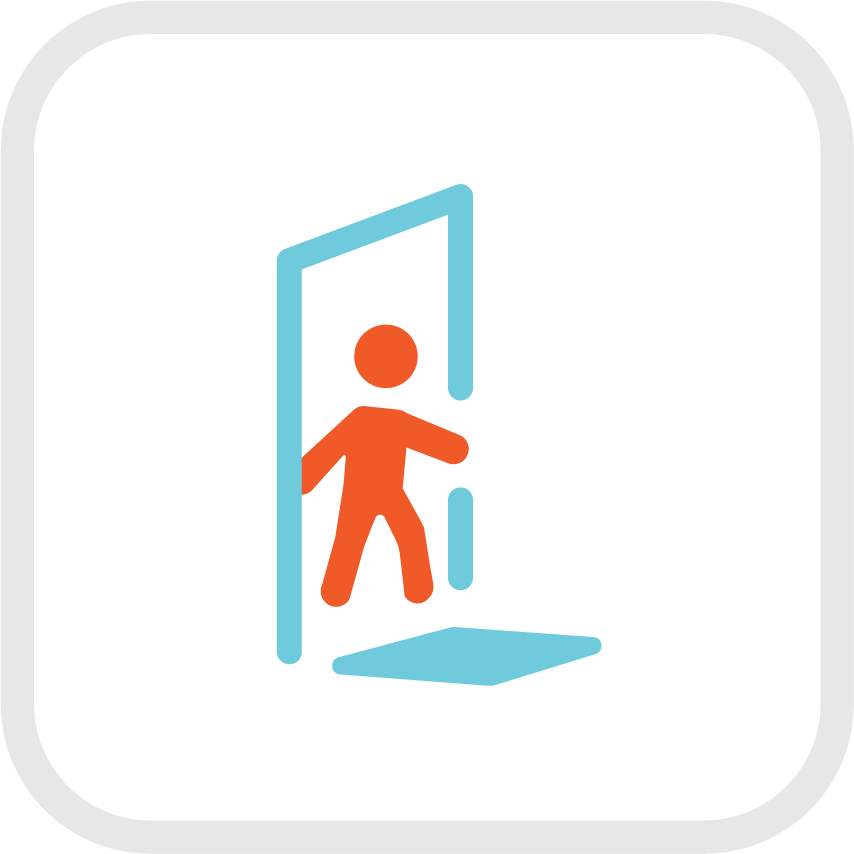
Pscyhotherapy
Psychotherapy is planned and structured, face-to-face treatment of a recipient’s mental illness., provided using standard techniques or modalities, directed toward measurable goals and objectives specified in the recipient’s individual treatment plan (ITP).
When provided in conjunction with other mental health services, psychotherapy can and should provide guidance to these other services to support the whole person.
This section of the guide has been updated most recently on September 20, 2018. Check back often for updates.
Eligibility and Referrals

Any adult or child with a diagnosed acute, serious or chronic mental health condition or behavioral disorder may receive psychotherapy. An individual may recieve up to three sessions of psychotherapy prior to the completion of the diagnostic assessment. Apply good judgment in referring persons to psychotherapy. Consider factors that must be present to support treatment readiness, participation and progress, such as basic needs, safety, stability, physical health, transportation, and others.
Children who are CTSS eligible should receive pyschotherapy as a service under that umbrella. Refer to that guide for information about psychotherapy for these children.

General Psychotherapy Requirements
- For admission, a Diagnostic Assessment that is current within the past year, or completed before the fourth psychotherapy session.
- For ongoing services the DA should be reviewed annually and a new DA conducted if identified by the conclusions of the review.
-
A Treatment Plan that is:
-
completed during the inividual's first two psychotherapy sessions;
-
reviewed updated every 90 days; and
- signed by the individual, or the individual's guardian.
Procedures for Adult Psychotherapy Treatment Planning
Develop the adult Psychotherapy Treatment Plan during the first psychotherapy session.
-
Use this session to:
- Explore the reasons why the inividual is seeking therapy at this time
- Identify long-term goals for treatment
- Using the inividual's self-identifed long-term goals, develop Treatment Objectives
- Obtain the inividual's signature on the plan by the end of the second session
-
Set the start date of the plan as the date on which you obtained the inividual's signature
-
Set the end date of the plan no later than 6 months from the start date.
- A progress review is required every 3 months. The plan may continue for another three months if this is the recommendation of the Treatment Supervisor for the individual.
-
Set the status of the plan to Approved or obtain approval from your Treatment Supervisor if needed
Treatment Planning Procedures - Children
Required Assessments and Forms
The following assessments and forms are required for Psychotherapy services to children:
- A Treatment Consent signed by the parent.* This is required to assure that Psychotherapy is not provided even once without the parent's/legal guardian's consent. Examples might be children in foster care, living with non-custodial parents, etc.
- *For a first psychotherapy sesssion, if the parent is present in the session, this is implied consent, but obtain a signed consent for future sessions.
- CASII or ECSII: Use to determine if the appropriate service is CTSS Psychotherapy (score of 3 or higher).
Develop the child Psychotherapy Treatment Plan during the DA and/or the first psychotherapy session.
-
Use these sessions to:
- Explore the reasons why the child (or the child's parent or caregiver) is seeking therapy (for the child) at this time
- Identify long-term goals for treatment
- Using the child's (or parent's) self-identifed long-term goals, develop Treatment Objectives
- Obtain the child's parent's signature on the plan by the end of the second session
- Set the end date of the plan no later than 6 months from the start date.
- A progress review is required every 3 months. The plan may continue for another three months if this is the recommendation of the Treatment Supervisor for the individual.
.
-
Set the status of the plan to Approved or obtain approval from your Treatment Supervisor if needed
First Service - Develop Goals and Objectives
Business rules require that you record progress on objectives (outcome statements) for psychotherapy services, even during the first session. During the first session, you will need to identify at least one goal and one objective, and approve it (or have it approved by your supervisor) in order to document the session. Do that on the day of service.

Session Frequency
Frequency of psychotherapy should be identified in a person-centered planning process. If psychotherapy is likely to be long in duration, limit frequency to once every two weeks unless assessment of risk factors, high stressors, recent trauma or grief, or other urgency merit more frequent sessions.
Depending on the payer, psychotherapy may be limited to 26 sessions per year without prior-authorization. Psychotherapy for Crisis is included in this count.
Clients who are insured through Blue Plus, UCare and Health Partners Medicaid PMAP plans are allowed to exceed the 26-session cap without prior-authorization when we have documented the medical necessity for this in the recipient's file.
Check with the Clinical Services Manager for the maximum number of sessions allowed for your client.

Consider This
While long-term therapy should follow the frequency and duration guidelines here, consider that psychotherapy need not necessarily always be a long-term service.
For both children and adults, consider brief intervention therapy - addresssing an immediate need, working through an issue, learning about symptoms, developing some skills, and informing other services.
Clients who discharge from brief intervention therapy can always return later if more issues arise or they don't feel they have the problem resolved.
In these cases, it might be appropriate to provide more frequent sessions with the intent on ending the service sooner.
When the course of psychotherapy treatment will exceed the maximum allowed number sessions during a calendar year and there is a strong medical necessity case for exceeding the maximum, you may be able to obtain prior-authorization from the payer, in consultation with a Treatment Supervisor.
However, obtain prior authorization before providing services that exceed the frequency or maximum allowed.
Session Duration
Session duration for psychotherapy may be 30, 45, or 60 minutes. Face-to-face time with the client for these sessions must be a minimum of 16-37, 38-52, and 53+ minutes respectively. The balance of the duration may be used for documenting the notes for the session.
Coordination with Other Services
As a psychotherapist, we expect that you will not only take a keen interest in, but a lead role in assuring the quality of other services received by the persons you serve. This includes referring them to medically-necessary services, assuring that the service plans address needs you have identified in the diagnostic assessment, monitoring engagement in and satisfaction with these services. You will review the assessments and plans for these services, approving individual components (and making final approval if you are fully licensed).
ARMHS can support Psychotherapy by including reinforcement and practice of coping/symptom management skills learned in therapy, or by providing skill development in other domains to improve engagement in therapy, remove barriers to participation, and improve independent living skills.
Case Management and Behavioral Health Home Services can support Psychotherapy by helping the individual locate and use resources to meet health care and basic needs and remove barriers to participation in therapy, as well as to overcome other functional barriers and deficits not addressed in psychotherapy.
Coordination includes:
- Review of the Functional and Service Intensity Assessments completed by Practitioners or Case Managers.
- Review of the ARMHS or CTSS Treatment Plans, and the Case Management or Behavioral Health Service Plan to assure that those plans support the work of Psychotherapy.
- Leading a Recovery Team Meeting with the individual and his or her Treatment Team at least annually to review Treatment Progress and make recommendations for continued services and discharge planning..
Interactive Complexity
Interactive complexity may be used only with Individual (not family) psychotherapy. Use the Interactive Complexity add-on code to designate a service with interactive complexity. Report interactive complexity for services when any of the following exist during the visit:
- Communication difficulties among participants that complicate care delivery, related to issues such as:
- high anxiety,
- high reactivity,
- repeated questions,
- disagreement,
- caregiver emotions or behaviors that interfere with implementing the treatment plan, or
- other behavior on the part of the recipient complicating the session.
- Discovery or discussion of evidence relating to an event that must be reported to a third party. This may include events such as abuse or neglect that require a mandatory report to the state agency, follow-up with Duty to Warn, and others, and other situations requiring follow-up consultation with others.
- The Mental Health provider overcomes communication barriers by using any of the following methods:
- play equipment,
- physical devices,
- an interpreter, or translator for recipients who are not fluent in the same language as the Mental Health provider, have not developed, or have lost the skills needed to use or understand typical language.
Document Interactive Complexity by selecting this as an add-on in the progress note.
Interactive Complexity requires supervisor review and authorization in all cases. It may be used in conjunction with a prolonged session. It may not be used with Psychotherapy for Crisis.
Psychotherapy for Crisis
Psychotherapy for Crisis helps to reduce a recipient’s mental health crisis through immediate assessment and psychotherapeutic interventions.
Psychotherapy for Crisis is not appropriate for:
- Current, Active psychotherapy clients. Provide normal psychotherapy services. Crises will occur from time to time. This is not the intention of Psychotherapy for Crisis.
- Current referrals to Psychotherapy who have a DA recommending this service, but have not yet received a first psychotherapy service and do not have a Treatment Plan for Psychotherapy services. In this case, if an incident or issue results in a Psychotherapy service earlier than expected, provide the service as normal Psychotherapy, and write and get the Psychotherapy Treatment Plan approved by the 2nd occurence of Psychotherapy.
Provide crisis psychotherapy when an individual who:
- does not have a current Diagnostic Assessment, or
- does not have a recommendation for, including Medical Necessity for, this service in a current DA
and who
experiences a sudden onset or increase of mental illness symptoms that put the recipient at risk of one of the following:
- are experiencing a life threatening mental health crisis
- needing a higher level of care
- worsening of symptoms without mental health intervention
- harm to self, others, or property damage
- significant disruption of normal functioning in at least one life area, such as self-care or housing
Eligible recipients of crisis psychotherapy do not need to have a current diagnostic assessment. A person who presents with a crisis may receive one crisis session. In this case, the psychotherapist must determine a diagnosis of mental illness using a brief emergency assessment. A recipient may receive one session of Psychotherapy for Crisis prior to receiving a diagnostic assessment.
Documenting Crisis Psychotherapy
Documentation of Psychotherapy for Crisis must include:
- Emergency assessment of the crisis situation (does not take the place of a diagnostic assessment)
- Mental status exam
- Psychotherapeutic interventions to reduce the crisis
- Development of a post-crisis plan that addresses the recipient’s coping skills and community resources
- Factors that make the mental health crisis life threatening or complex
- History of the crisis
- Results of the mental status exam
- Recipient’s coping skills used to reduce the crisis
- Community resources used
- Psychotherapy techniques and interventions used and the recipient’s response
- Protective and risk factors that influenced the outcome of the intervention
- Reason for the particular services chosen
- Steps taken to assure the recipient’s safety after the intervention
Service Duration for Psychotherapy for Crisis
Psychotherapy for Crisis must be at least 30 minutes in duration, considering the elements that must be included in this service. See instructions below for documenting prolonged crisis psychotherapy sesions totaling 90 or 120 minutes.
Prolonged Sessions
Psychotherapy for Crisis sessions that require an intervention that prolongs the session when it lasts 91 minutes or longer. Document an prolonged session by using the Prolonged Psychotherapy Session add-on.
For Crisis Pscychotherapy, up to two add-ons may be used for prolonged sessions of 30 minutes (90+) or 60 minutes (120+).
Explain in the narrative why the prolonged session was necessary.

Adult Psychotherapy
Use the following service types for Adult psychotherapy services.
|
Service Name
|
Use For
|
Counts Toward Target Time
|
Psychotherapy Adult
Psychotherapy Adult by EL Trainee
|
Minimum 16 minutes. 16-89 minute session. Tabs will determine the proper code based on duration of the session and qualifications of the provider.
|
Yes, at 30, 45, or 60 minutes
|
Psychotherapy Adult - Cancellation Other
|
Appointment is cancelled for reason other than the recipient cancelled – explain the reason for the cancellation.
|
No
|
|
Psychotherapy Adult File Note
|
Documenting brief information for the file.
|
No
|
|
Psychotherapy Assmt and Planning Adult
|
Developing the psychotherapy plan outside of the therapy session.
|
No
|
|
Psychotherapy Client Cancellation Adult
|
Recipient cancels or no-shows for an appointment. Explain the circumstances.
|
No
|
|
Psychotherapy Contact & Scheduling Adult
|
Time spent attempting to contact clients to set appointments.
|
No
|
Psychotherapy Crisis Adult
Psychotherapy Crisis Adult by Trainee
|
Psychotherapy for Crisis as defined above.
Prolonged add-on for 90 minutes or more. Up to two may be added if the session lasts 120 mintues or more. |
Yes
|
Psychotherapy Family w/o Patient Adult
Psychotherapy Family w/o Pat Adult Trn
|
Family psychotherapy when the recipient is not present in the session.
Duration guideline: at least 53 minutes. |
Yes, at 60 minutes |
Psychotherapy Family w/ Patient Adult
Psychotherapy Family w/ Pat Adult Trn
|
Family psychotherapy when the recipient is present in the session.
Duration guideline: at least 53 minutes. |
Yes, at 60 minutes
|
Psychotherapy Group Adult
Psychotherapy Group Adult by Trainee
|
Group therapy.
Duration guideline: at least 53 minutes.
|
Yes, at 60 minutes
|
Psychotherapy Multi Family Adult
Psychotherapy Multi Family Adult Trainee
|
Group family therapy
Duration guideline: at least 53 minutes.
|
Yes, at 60 minutes
|
|
Psychotherapy Service Coordination Adult
|
Coordinating, communicating with other mental health, health care, social services, residential, and other providers.
|
No
|
Adult Psychotherapy Add-Ons
Use the following add-on service types for adult psychotherapy.
|
Service Name
|
Use For
|
Adds to Target Time
|
|
Psychotherapy Adult Int Complexity
|
Adding on interactive complexity as defined above.
|
Not applicable
|
| Prolonged Psychotherapy Session |
Extending a psychotherapy session over one hour by at least 30 minutes |
Yes
|
| Prolonged Psychotherapy Crisis Adult |
Extending a psychotherapy session over one hour by 30 mintues. Up to 2 extensions may be added. |
Yes
|
|
Recovery Team Meetng
|
Facilitating a Recovery Team Meeting with other providers.
|
Depends. |
|
Therapy Travel Adult
|
Adding on travel to a therapy session provided in a home or community location.
|
Yes
|
|
Adult Therapy CCN Travel
|
Documenting time and mileage to a cancelled adult session in a home or community-location.
|
No
|
Child Psychotherapy
Use the folowing service types for child psychotherapy.
|
Service Name
|
Use for
|
Target Time
|
|
Psychotherapy Assmt & Planning Child
|
Conducting standardized outcome or other assessments, and treatment planning for psychotherapy for children who are not CTSS-eligibile.
|
No
|
Psychotherapy Child
Psychotherapy Crisis Child Trainee |
Minimum 16 minutes. 16-89 minute session. Tabs will determine the proper code based on duration of the session and qualifications of the provider. |
Yes at 30, 45 or 60 minutes
|
Psychoeducation Family w/o Recip Child
Psychoeducation Fam w/o Recip Child Trn
|
Providing Psychoeducation Services as defined above to family members without the child present
|
Yes
|
Psychoeducation Family w/ Recip Child
Psychoeducation Fam w/ Recip Child Trn
|
Providing Psychoeducation Services as defined above with the child present..
|
Yes
|
Psychoeducation Individual Child
Psychoeducation Individual Child Trainee
|
Providing Psychoeducation Services to the child.
|
Yes
|
Psychotherapy Crisis Child
Psychotherapy Crisis Child by Trainee
|
Crisis psychotherapy as defined above.
|
Yes
|
Psychotherapy Family w/o Patient Child
Psychotherapy Family w/o Pat Child Trn
|
Family psychotherapy
|
Yes
|
Psychotherapy Family w/ Patient Child
Psychotherapy Family w/ Pat Child Train
|
Family psychotherapy
|
Yes
|
Psychotherapy Group Child
Psychotherapy Group Child by Trainee
|
Group psychotherapy
|
Yes
|
Psychotherapy Multi Family Child
Psychotherapy Multi Family Child Trainee
|
Group psychotherapy to families
|
Yes
|
|
Psychotherapy Contact & Scheduling Child
|
Calling or corresponding with children and families to arrange services.
|
No
|
|
Psychotherapy Child File Note
|
Making a note in the child's file.
|
No
|
|
Psychotherapy Service Coordination Child
|
Coordinating/collaborating with other providers who serve the child.
|
No
|
|
Psychotherapy Child - Cancellation Other
|
Cancellation of psychotherapy services for reasons other than the child or parent cancelled.
|
No
|
|
Psychotherapy Client Cancellation Child
|
Child or parent cancelled or did not attend the therapy session.
|
No
|
Child Psychotherapy Add-Ons
Use the folowing service types for add-ons to child psychotherapy.
|
Service Type
|
Use For
|
Adds to Target Time
|
|
Psychotherapy Child Int Complexity
|
Interactive complexity as defined above
|
No
|
| Prolonged Psychotherapy Crisis Child | Psychotherapy for Crisis as defined above.
Prolonged add-on for 90 minutes or more. Up to two may be added if the session lasts 120 mintues or more. |
Yes
|
| Prolonged Psychotherapy Session |
Psychotherapy for Crisis as defined above.
Prolonged add-on for 90 minutes or more. Up to two may be added if the session lasts 120 mintues or more. |
Yes
|
|
Therapy Child CCN Travel
|
Travel to a cancelled therapy session in a home or community-based setting.
|
No
|
|
Therapy Travel Child
|
Travel to a therapy session in a home or community-based setting.
|
Yes
|

Progress Defined
Progress in psychotherapy is measured by the progress of each individual, as determined by his or her treatment plan. However, some broad goals that indicate success in psychotherapy are:
- Achievement of goals and objectives in the psychotherapy plan
- Resolution of a short-term crisis or mental health problem (e.g., trauma or grief);
- Effective safety planning to mitigate risk of self-harm and harm to others
- An improved understanding of their own experience of each diagnosis they have, and common interventions that can effectively treat them
- Desensitization to and reprocessing of unresolved traumatic experiences underlying triggers and the associated reactivity that reduces functioning
- Cognitive restructuring of specific maladaptive thought patterns
- Development of healthy coping strategies to replace routine self-medication with substances
- Improved self-confidence and self-esteem to serve as a foundation for more effective assertiveness
- Greater capacity to accept and adapt to things they cannot change
- Development of evidence-based strategies for maintaining psychiatric stability
- Healthier relationship dynamics for couples and families
- Where functioning is impaired by chronic symptoms, improved engagement and ability to participate in other health and mental health care services targeted toward improvement in functioning and quality of life and
- Treatment progress in functioning, including independence at home, overall health, connection, purpose, and quality of life where mental health symptoms have impacted functioning
-

Disharge from Psychotherapy may occur in any of the following circumstances:
Administrative Discharge
Administrative Discharge occurs when a recipient has:
- Moved out of state
- Moved or been out of contact for a period of one month or more and contact is not possible because the client does not have a phone and we have no known address, or any collateral contact persons associated with the individual
- Moved to another county in the state where we do not have an Psychotherapy presence.
- Has been incarcerated and will remain so after any current assessment or treatment plan expires.
- Has transferred to Psychotherapy services with another provider.
- Has requested discharge for another, documented reason.
- Is no longer eligible for Psychotherapy services for other administrative reasons.
Clinical Discharge
Clinical Discharge occurs when the recipient:
- Has achieved his or her goals/outcomes and reaches a level of psychiatric stability and status so that Psychotherapy services are no longer necessary, and has participated in a voluntary successful discharge process, including connections to formal and informal ongoing supports
- No longer qualifies based on a Diagnostic Assessment and Eligibility Screening using the eligibility requirements above during an recently-updated Diagnostic assessment that determines Psychotherapy services are no longer necessary, and has been informed of the finding, and received information about appeal rights.
- Has repeatedly declined to participate in assessment updates to maintain ongoing eligibility determination, with documented evidence of effort to schedule and conduct the session, including offering to provide the assessment at home as needed, arranging transportation, etc.
- Has needs that will be met better by another agency, and has been referred and admitted for Psychotherapy services with that provider.
- Has disengaged from services for a period of two months or more, with documented efforts to contact, schedule, re-engage and coordinate with other service providers within and outside the agency. In this case, take the following steps prior to discharge:
- Someone other than the assigned Psychotherapy provider attempts to contact the indivdual investigate the reasons for disengagement.
- Make efforts to re-engage the recipient through other service providers or the referral source.
- If contact is lost, send a letter to the recipient's last known address, offering services and inviting the recipient to re-engage at any time.
- Move the recipient to Closing status until the date on the letter inviting them to re-engage.
- After the date of planned discharge identified in the letter, move the individual to Previous status and close the case by completing a Discharge Progress Review and changing the individual's status to Previous.
Caseload Management
- Provide services at the frequency and duration identified in the treatment plan and within payer limits.
- Make and document at least weekly efforts to contact disengaged individuals and contact at least one other provider (internally or externally) as a part of effort to find/engage them.
- Do assessment & planning and progress review work with individuals and never updates plans or assessments without recent contact.
- Meet or exceed all assessment and planning deadlines with exceptions for individuals who have disengaged in the weeks or months previous to updates.
- Proactively schedule and complete DA updates previous to the due date.
- Proactively monitor individual's insurance eligibility renewal dates and connect them as needed with resources to prevent lapses in insurance.
Referral and Service Coordination
- Make and document referrals for all mental health services recommended in the DA and other assessments, and document individuals' preferences. Follow up when individuals decline.
- Identify barriers to participation in services, including, but not limited to maintaining stable housing, transportation, maintaining financial supports, etc. and advocates for necessary supports.
- Identify all mental health services to which current persons served have been referred, their current status for each, and level of engagement.
- Review Case Management ICSP and ARMHS Treatment Plan as applicable, assuring alignment with DA recommendations and Psychotherapy plan.
- Consult regularly with other mental health services providers to assure that services meet individual needs.
- Use custom time reports and check in with individuals served to monitor engagement in other mental health provided at Accend, and checks in with individuals on progress and satisfaction.
- Able to report generally on engagement and treatment progress in other services received by persons served.
- Where individuals disengage from other services, explore with them their reasons for disengagement and report back to the provider and supervisors.
- Maintain information in each individual's file on what other health care services they need at this time, referrals made, and participation, including well care and treatment for conditions.
- Maintain notes on other supports individuals need & referrals made to case management, housing, residential, vocational./educational, financial, legal, advocacy, and social services, etc.
- Documented contact information for all providers of outside services, natural supports persons, referral sources & others who are part of individuals' recovery and extended support team.
- During each update Progress Review examine and report on all of the above, including needs for services, referrals made, engagement and participation, and progress.
- Facilitate Recovery Team Meetings concurrent with DA updates.
Treatment Progress
- Ensure each person served has shown measurable progress toward identified goals or objectives (outcomes) in his or her current Psychotherapy (and other mental health service plans where applicable.)
- Ensure each adult also receiving CMGT or ARMHS has shown measurable progress in the 6 FA progress ratings in at least one treated domain. Children make progress in standardized outcomes assessments.
- For individuals who receive CMGT or ARMHS, provide evidence that MH services during the past year have resulted in at least one of the following positive outcomes for each person served:
- Improved psychiatric stability/symptom management
- Improved physical health
- Improved use of health care and mental health services
- Maintained or improved housing and/or independent living status
- Improved connection to formal and informal support networks
- Improved vocational, educational status or participation in other meaningful and purposeful activity
- Prevented or reduced mental health-related hospitalizations
- Prevented or reduced crisis team interventions or crisis placements
- Prevented or reduced need for residential treatment
- Prevented or reduced incarceration or other loss of independence such as mental health commitment

Minnesota Health Care Programs Manual: Psychotherapy
Minneasota Health Care Programs Manual: Psychotherapy for Crisis
This guide is a living document. We want to improve it with your help. Do you have questions? Found a typo? Find yourself wanting more information? Please send us your thoughts about anything in this chapter by tapping on the link below.
Updates to this Guide
March 19, 2023:
1) Instructions for Prolonged sessions (peviously called "Extended") updated to comply with changes in state rules.
2) Documention guidelines updated to reflect these rules and administrative simplification of documentation.
3) "Extended" session language replaced with "Prolonged" to match DHS language.
April 18, 2023: Language for Assessment and Planning for children's psychotherapy clarified that a CASII/ECSII is required to determine if the child is eligible for CTSS Psychotherapy.
September 25, 2024: Language add that for Documenting psychotherapy (children or adult) minimum session is 16 minutes..
April 8, 2025: Language added explaining that a stand-alone Treatment Consent form signed by the parent is required for Child Psychotherapy services.









